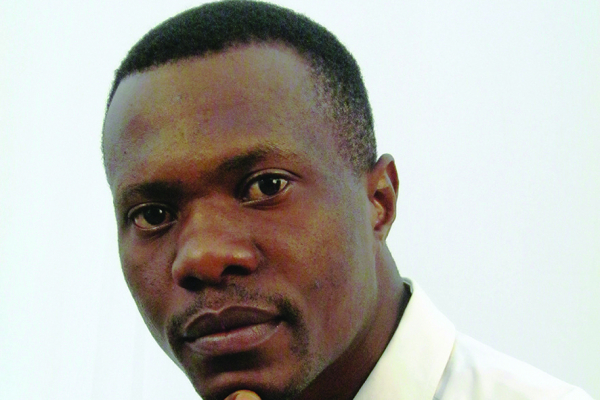
Guest Column: Learnmore Zuze
IMMEDIATELY after the ouster of Robert Mugabe from power as President in November 2017, Zimbabwe was gripped by euphoria and a flood of positive expectations.
The nation had endured the worst under Mugabe’s rule, or so it thought. The day that incumbent President Emmerson Mnangagwa set foot on Zimbabwean soil after 16 days of a brief exile in South Africa defined a new chapter of hope and renewal for crisis-weary Zimbabweans. The world in general and Zimbabwe in particular, for the first time, envisioned the real prospect of a tenable democracy.
Everyone had borne the brunt of Mugabe’s repressive rule, including Mnangagwa himself, having been hounded out of the ruling Zanu PF party and pursued as he fled the country. So, to the majority, the arithmetic of fixing Zimbabwe’s troubles was simple; all that an incoming President had to do to warm the hearts of Zimbabweans and the larger international community was to halt and reverse the policies of Mugabe that had resulted in economic stagnation.
Chief among Mugabe’s sins were his costly fights with America and Britain. The skirmishes which saw Mugabe rise to world infamy comprised his acerbic speeches on Britain’s Tony Blair and America’s George Bush in his heyday. This did not cost himself and his inner circle much, but the rest of ordinary Zimbabweans who felt the weight of haggling with the two economic giants. The people who felt the heat were ordinary Zimbabweans surviving through honest living. It was then that Zimbabwe’s name became synonymous with States like Libya and Cuba. Zimbabwe was, for all intents and purposes, a failed State prior to the Government of National Unity in 2009. Police brutality, blatant election rigging and corruption were some of the misdeeds of Mugabe that everyone hoped to see disappearing under a new dispensation.
Upon touching ground, Mnangagwa’s first presidential speech hit the right chords. His speech glowed with words of restoration. He highlighted Zimbabwe’s openness for business. But perhaps the heart-winning part of his speech pertained to the need for Zimbabwe to re-engage with the West and to shade-off the tyranny tag.
Mnangagwa spoke of the need for Zimbabwe to return to the family of nations. It was all good. In the first few months, talk of re-engagement gathered momentum and the President reached out to a number of influential countries and institutions. Even Foreign Affairs minister Sibusiso Moyo has flown around selling the gospel of a Zimbabwe open for business. It is true that efforts towards re-engagement remain visible, but there is something quite paradoxical about the Zimbabwean government’s quest for acceptance and re-engagement with the West.
It is ironical that despite full knowledge of the fundamental ideologies of the West and America, which emphasise the rule of law and respect for human rights, the government of Zimbabwe, on the ground, doesn’t seem to be in alignment with the re-engagement efforts on which thousands, if not millions of dollars are being spent in air travel.
- Chamisa under fire over US$120K donation
- Mavhunga puts DeMbare into Chibuku quarterfinals
- Pension funds bet on Cabora Bassa oilfields
- Councils defy govt fire tender directive
Keep Reading
The sage, Anon, once said: “The more I grew older and wiser, the more I stopped listening to what people said but instead, I focus on what they actually do to understand reality.”
And how powerfully applicable the words are to Zimbabwe today! Action is what defines someone’s priorities. There is an enormous chasm between the utterances of the Zimbabwean government and its actions back home.
It presents a serious irony about how, in all honesty, Zimbabwe expects international credit lines to be opened and sanctions to be removed when there is a brazen attack on civil liberties back home. The widely publicised spate of abductions which the government has vehemently denied and the crackdown on dissenters witnessed on August 16, all buttress the concept of a dying democracy in Zimbabwe. Worse, it is inconceivable and raises a stink that all the courts would deem it fit to ban demonstrations across the country as if the conditions prevailing in each city were the same. I totally subscribe to the ideology that every government must leave an opening for democracy.
Constitutions exist for a key reason; that there should be a limit to the exercise of power. It should send chills down the spine of Zimbabweans if democratic outlets continue to be stifled as we see in the country. Constitutionalism provides for people to see things differently. The Zimbabwean government has, to the contrary, shrunk all democratic space. Even something that should be harmless as satirical pieces of work from artists are under attack. Zimbabwe seems to have drifted back to the Mugabe days where the government had an air of mafia-like style of operation. The masses could not dissent and it was something of an anathema to oppose the government.
The most astonishing part of the goings-on in Zimbabwe is that we are again at the same place where the United States and the United Kingdom would, in the past, view us as an outpost of tyranny. It is apparent that re-engagement cannot occur in letter and spirit if actions on the ground speak otherwise.
Until the actions and the words of the government complement each other, then the re-engagement myth will continue.
Learnmore Zuze is a legal officer and writes here in his own capacity.











